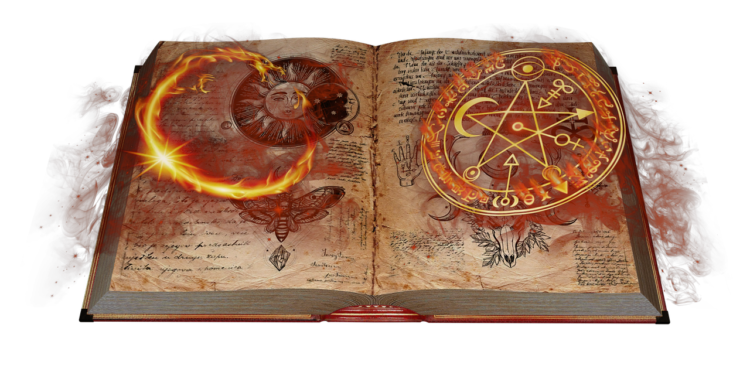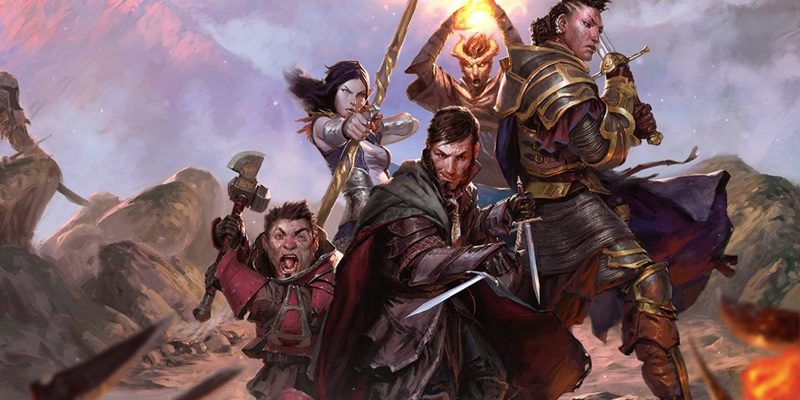Creating a magic system for your game P1

A roleplaying magic system can be a pretty cut and dry thing: a spell list, damage, area of effect and so on, but if done correctly it can do so much more. Properly done, a magic system can be used to deepen the setting’s theme and background, informing the players and DM about the world, the peoples, and cultures.
All “magic” systems rely on manipulating reality through the use of magic power, special effects, technology+, innate abilities, or mutations to create an effect. These effects can be as diverse as healing, damaging others, controlling the elements, buffing, disguise, summoning, animating, controlling the dead, and so on. The generation of these effects typically takes time to produce and generally drain the character’s health, energy, memory, spiritual power, etc. Such systems are often limited in how much can be accessed at any given time, subject to failure or interruption, through various methods and mechanics. These articles examine each of the abovementioned aspects at a high level.
Magic Power as Strength
The magic power itself requires some form of strength. Some representations for this are:
- The spell caster relies on one of his or her main stats to cast the spell. Characters without the requisite either can’t cast spells or are limited in which spells they can cast. Usually, this boils down to some mental or spiritual aspect of the caster.
- At least in D&D-esque games, the stats that do this are Intelligence, Wisdom, and Charisma. Wizards use book smarts to cast spells. Wisdom is for the more spiritually inclined, clerics, rangers, druids, and monks (though monks have ki abilities, not spells per se). Charisma is for casters who use personality, and sheer force of will to bend the universe to their will or those who have made deals with powers such as devils, outsider and ancient powers, and beyond the ken of normal people. Bards, sorcerers, and warlocks fall into this category.
- In tri-stat games, this would be the “mind” or “soul” stats.
- Some game systems even have a stat called “fate.”
- The Star Wars game has the “Force-sensitive” attribute.
- In Robert Jordan’s “Wheel of Time” series magic is broken down into the male saidin and female saidar halves, and both halves use “weaves” of fire, water, air, earth, and spirit to accomplish their goals. Unfortunately, the “official” splat-book did a poor job of implementing this mechanic.
- Rarely the requisite stat is based on the user’s physical capabilities, and at times drawing upon the caster’s very life essence to power the spell, thus weakening the caster with each spell she casts. An example of physical capabilities being used to cast spells is Cashel, in David Drake’s Lord of the Isles series is dumb as a rock but his casting power is based upon his tremendous strength and endurance. Another such character would be Marvel’s Juggernaut.
- The spell caster’s power is limited by level, or by how many points are put into each of their appropriate powers for casting.
Magic Power as Reality Manipulation
Reality has specific guidelines that it goes by gravity, magnetism, properties of objects, fire catches and burns flammable objects or melts materials like metal if hot enough, etc. Magic, if successful seeks to, at least temporarily (and in some cases permanently) bend or break these rules. How reality breaks and for how long depends on the spell that is cast, its duration, area of effect, etc. Magic’s formation, reality’s warping, and the “methods of magic” should be described in the magic system so the player can use their imagination when casting a spell.
In some systems, “reality” is an unwritten contract with everyone and everything. Using magic around those who don’t know that reality is alterable causes adverse side effects for the caster. One such game setting where this happens is in the “World of darkness.” On the other hand, sometimes magical ceremonies, spells, etc. can be cleverly disguised as everyday interactions that no one would ever be able to perceive as magic. Other realities feature magic as such an integral part of the world’s fabric; seemingly impossible things happen all around people without anyone giving a second thought to what’s going on.
In cases where magic is rare or warps reality and backlashes on casters, DMs need to figure out a balance which allows them to still use their powers, limits the type and duration of the backlash, or build in guidelines about what kind of things are allowed to prevent characters from getting knocked out or killed from casting simple spells.
Magic Generation
Casters generate magic in a variety of ways. These ways may include the following
- Genetics: in your gaming world people with a particular background can cast magic, spells, incantations, etc. Consider:
- One ethnic group developed the ability to use magic, whereas others did not
- Sometimes genetics allow for one subspecies to automatically learn specific magic, whereas their brethren do not. This is a standard fantasy race trope.
- Weird genetics like one of the player’s ancestors was an alien, demon, dragon, or elf – or even something strange like a hag, which is why they have the magical ability.
- Genetic manipulation: someone deliberately messed with or through natural selection, as in the case of “Mutants”
- Similarly to the one above, certain physiology, such as being a vampire or other undead, or a werewolf can also grant you certain powers.
- Ancient Technology: in certain game systems the ‘magic’ isn’t magic at all, but consist of some readily usable form, such as a sword, super-weapon that people still know how to use, etc. An example of this is the 1990s cartoon of Iron Man, in which the Mandarin’s rings were the power source for a crashed space ship.
- Misunderstood Science I: many of the powers that bards have really aren’t magical in nature, but simply an application of science. Sound can relax people, causing them to go to sleep. Music can also cause vibrations. If the vibrations are strong enough they can affect the ground and even shatter crystalline objects.
- Misunderstood Science II: despite being called magicians, alchemical concoctions aren’t magical in nature. Greek fire may have been an early form of phosphorous. The “Philosopher’s stone” (unlike in Fullmetal Alchemist manga and anime) is not a device by which contains souls. Historically, it’s a method by which the user was purported to A) become immortal and B) be able to turn base metals into gold. It could be the stone is an ultimate panacea!
- Contractual magic: sometimes the only magic that exists in a world is a contract with demons and binding them into your service.
- Alien Help: the “magic” in question is actually alien in nature, but because of the fact that the people using it don’t realize this, they call it magic. Parodied in Meteor Man, an average man gets hit by an alien space rock for hilarious effects. Both of these examples are from DC comics. “Lantern Rings” might be seen as a type of technology that specifically responds to the “emotional spectrum.” The “Blue Beetle” is a technology that was designed to infiltrate and slowly conquer earth.
- Item magic: maybe the ‘magic’ is simply different combinations of materials that produce various effects, of which the people using them, don’t understand how exactly it works, so they call it ‘magic.’ Enchantment of objects would also fall into this category.
- Ceremonial magic: sometimes magic may need to have a group of people to cast it because of the complexity of it.
- Knowledge as magic: the user knows the secrets to manipulate reality, and thus bend it to their whim, provided they can learn or deduce the formula to doing so.
As you can see, there are a variety of ways to build a magic system for your game. Figuring out where your characters get their magic strength, how they’re breaking reality – and for how long, and how they’re generating the effect will help build your magic system.
+ Clarke’s 3rd Law: Sufficiently advanced technology is indistinguishable from magic.



